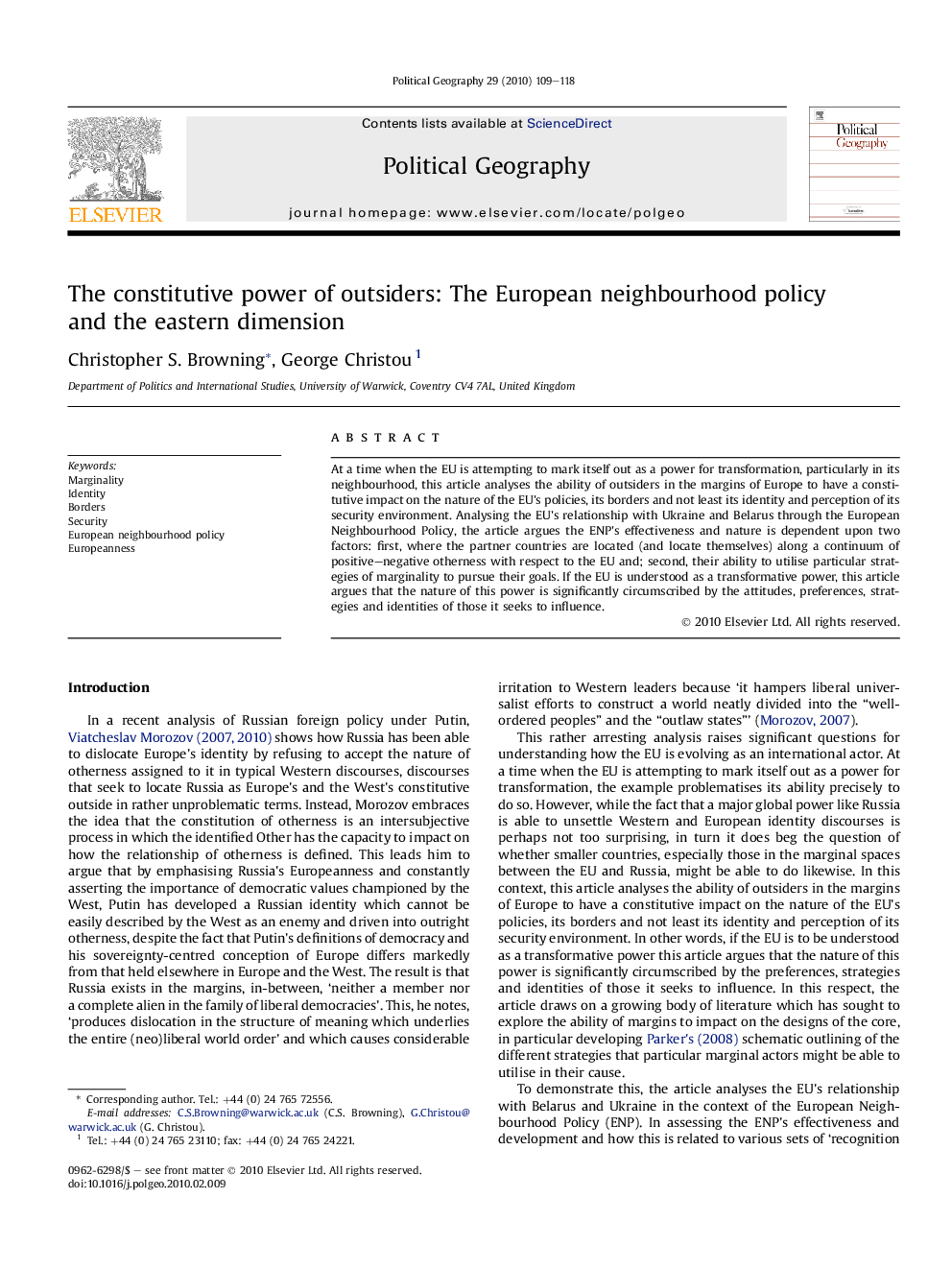| Article ID | Journal | Published Year | Pages | File Type |
|---|---|---|---|---|
| 1062173 | Political Geography | 2010 | 10 Pages |
At a time when the EU is attempting to mark itself out as a power for transformation, particularly in its neighbourhood, this article analyses the ability of outsiders in the margins of Europe to have a constitutive impact on the nature of the EU's policies, its borders and not least its identity and perception of its security environment. Analysing the EU's relationship with Ukraine and Belarus through the European Neighbourhood Policy, the article argues the ENP's effectiveness and nature is dependent upon two factors: first, where the partner countries are located (and locate themselves) along a continuum of positive–negative otherness with respect to the EU and; second, their ability to utilise particular strategies of marginality to pursue their goals. If the EU is understood as a transformative power, this article argues that the nature of this power is significantly circumscribed by the attitudes, preferences, strategies and identities of those it seeks to influence.
